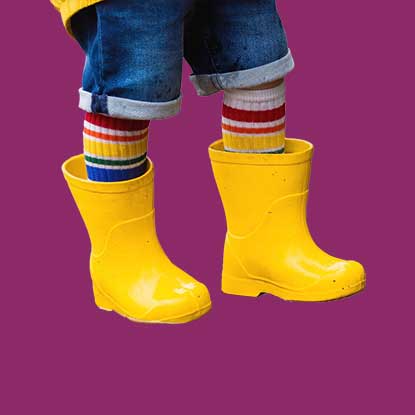Preparing for school
Early years education
Early Years Foundation Stage
Read about the Early Years Foundation Stage, a childcare and early education framework from birth to age 5.
Free early education for 3 - 4 year olds
Learn about the Early Education Fund for 3 and 4 year olds that entitles your child to 570 hours of free early education.
Childcare and early years education
Search for childcare options available to you, including creches, childminders and day nurseries.
Apply for a nursery place
Find out about nursery admissions and get details about early years education providers.
Getting your child ready to start school
You are your child’s first and most important teacher, and the support you give your child will help them to develop into lifelong learners. Use everyday events to teach basic skills that they will need to be ‘school ready’ and ‘life ready’.
What is school readiness?
School readiness may mean several things to different people. At Oxfordshire County Council, we have adopted UNICEF’s description of the three elements of school readiness.
- Children’s readiness for school
- Families and communities’ readiness for school
- Settings’ and schools’ readiness for children.
Children have the potential to become school ready when families, early years providers and schools work together to support the development of children’s confidence, resilience and curiosity.
A child who is ready for school will be:
- curious and confident about learning
- resilient and ready to take part
- able to take risks, ask questions and find solutions
- confidently active and healthy
- independent with self-care skills
- comfortable with making friends and taking turns
- cared for and feel safe and secure
- able to vocalise choices.
Is your child ready?
Ask yourself these questions to see if your child is fully prepared to start school.
- Are they able to dress themselves?
- Are they becoming confident and able to make friends?
- Can they go to the toilet on their own?
- Can they listen to others with understanding?
- Can they explain how they feel?
The tracker below can help you and your child prepare for school.
Moving from childcare to school
The PACEY website's activity sheets will help you support your child get ready for school. It's not about the RAW (reading, arithmetic and writing) skills - rather helping children be curious, confident and ready to learn.
Toolkit to support school readiness
The PACEYtoolkit supports parents before school, during the first days and throughout the first year.
Blogs - learning and development
Many of PACEY’s blogs are written by experts in their field and explore the key areas of learning for young children. Choose an area of learning below to find out more.
Spotlight on being school ready
PACEY has gathered key resources to help you and your child prepare for their new adventure.
Apply for a school place
Delay reception application
How to delay reception application for children born 1 April to 31 August.
Find out about schools
How to find out if a school is suitable for your child.
Travelling to school
You must think about how your child will get to school when you are applying for a reception place. We provide free home to school transport in limited circumstances.
Apply for a reception place
How and when to apply to reception at infant and primary school.
Special educational needs and disability (SEND)
Early support for children with complex health needs or disabilities
Early Support is a way of improving the delivery of services for children who need support from a range of specialist community services.
Family Information Directory
The Family Information Directory lists activities and services for children with special educational needs and disabilities.

